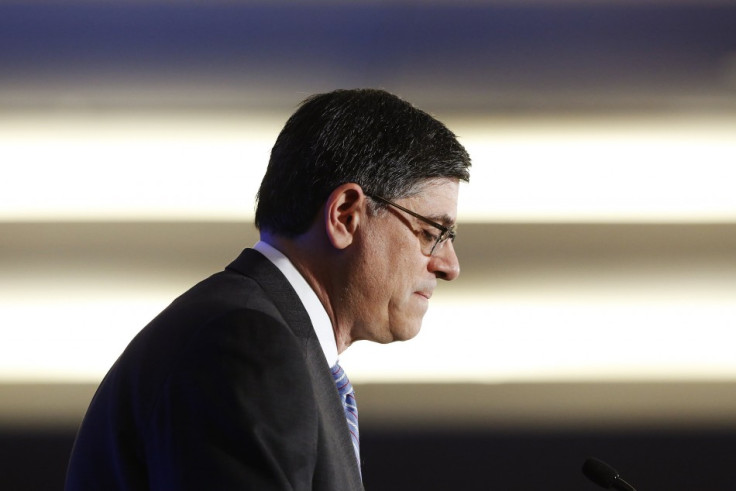US Government Shutdown: Treasury and Fed Prepare for Possible Debt Default

The US Treasury and Federal Reserve are contemplating on alternatives to fund the country in case the ongoing political deadlock continues even after the due day to approve an increase in debt ceiling.
Reuters reported that "officials are examining what options might be available to calm financial markets if a US debt payment is missed".
The authorities will consider a key bank funding market known as the tri-party repurchase agreement or repo market, "a source familiar with the plans" told the news agency. In the repo market, banks often use Treasury bills, notes and bonds as collateral for short-term loans from other banks and big money market funds.
The officials did not disclose further details about their plans, as they fear investors and the Republicans may take advantage of it. They also noted that there was no way to avoid an eventual default if debt limit is not raised.
The officials believe that their plans can only mitigate the expected catastrophic fallout in the absence of an agreement among Congress members.
'No Other Legal Options to Extend Borrowing Power'
The US government entered into a partial shutdown from the beginning of October after its Parliament failed to pass a budget for 2014.
The world's largest economy will run out of cash to pay its bills on 17 October if the debt ceiling is not raised. The country's laws limit its borrowing at $16.7tn (£10.3tn, €12.3tn).
In order to discuss on the grave situation, Treasury Secretary Jack Lew is scheduled to meet the Senate Finance Committee on 10 October.
In a letter to the House of Representatives on 1 October, Lew informed Congress that the Treasury has begun using the final extraordinary measures to be able to pay the nation's debt on a temporary basis.
"There are no other legal and prudent options to extend the nation's borrowing authority," Lew wrote.
"Any plan to prioritize some payments over others is simply default by another name," Lew wrote in a more recent letter to Congress.
"There is no way of knowing the damage any prioritization plan would have on our economy and financial markets."
Pressure from Foreign Creditors
Foreign countries that heavily invested in US government bonds have recently started warning the US government over the political impasse.
The Bank of Japan's Deputy Governor Hiroshi Nakaso said in a speech that the ongoing US government shutdown over the debt ceiling crisis will adversely impact the global economy and asked for a "prompt resolution" of the issue.
He noted that the US economy is facing the "greatest uncertainty" due to the fiscal consultation issue on which the Democrats and the Republicans opposing each other sharply. Japan holds more than $1tn of US Treasury bonds.
"We ask that the US earnestly takes steps to resolve in a timely way the political issues around the debt ceiling and prevent a US debt default to ensure the safety of Chinese investments in the United States," he said.
China is the largest foreign creditor of the US.
© Copyright IBTimes 2024. All rights reserved.






